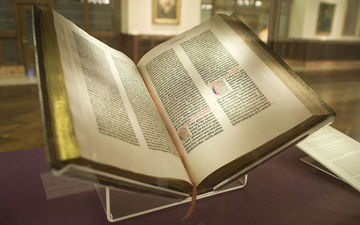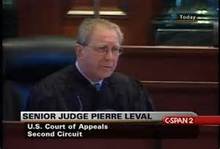Dangling metaphors
 This week, the veteran screenwriter Ken Levine started a thread on outdated terms in common use that no longer make sense, like "dial" and "tape". "Carbon copy" persists as the "cc:" line email headers; copy" and "paste" are ubiquitous. These are dangling metaphors, like a dangling clause in a sentence: they have lost their roots in reality. It's easy to see how this comes about. In order to explain a new technology to people who haven't encountered it before, its inventors plunder the language of the older technology it's replacing.
This week, the veteran screenwriter Ken Levine started a thread on outdated terms in common use that no longer make sense, like "dial" and "tape". "Carbon copy" persists as the "cc:" line email headers; copy" and "paste" are ubiquitous. These are dangling metaphors, like a dangling clause in a sentence: they have lost their roots in reality. It's easy to see how this comes about. In order to explain a new technology to people who haven't encountered it before, its inventors plunder the language of the older technology it's replacing.
Unfortunately for artists, creators, rights holders, and the legal system, the internet has long been making copyright law into a dangling metaphor. In 1992-1993, John Perry Barlow warned about this when he called it selling wine without bottles. I was reminded of it this week at the London Book Fair, where this year's Charles Clarke lecture was a debate about fair use between Pierre Leval, who ruled in Google's favour in the Google Books case, and frequent sparring partner Jon Baumgarten, former General Counsel at the US Copyright Office, who publicly disagrees.
 Leval's decision in the case saw Google Books as a transformative work that does not compete with the authors' or publishers' market and is not a substitute for buying the book, but offers "gigantic" benefits to the public and to authors by helping to find books. "Fair use is not your enemy," Leval said to this audience of, predominantly, publishers.
Leval's decision in the case saw Google Books as a transformative work that does not compete with the authors' or publishers' market and is not a substitute for buying the book, but offers "gigantic" benefits to the public and to authors by helping to find books. "Fair use is not your enemy," Leval said to this audience of, predominantly, publishers.
 Baumgarten, by contrast, deplored the "take first and negotiate later if we're caught" approach, which he called a "well-known tactic of mass infringers". Fair use analysis should not minimize the core fact of unauthorized reproduction, he argued, adding that the decision is already being "misapplied" by others and that the conclusion that Google Books does no harm paid insufficient attention to the potential for the rights holders themselves to create a market. (Chorus of Netheads: "But they didn't!"
Baumgarten, by contrast, deplored the "take first and negotiate later if we're caught" approach, which he called a "well-known tactic of mass infringers". Fair use analysis should not minimize the core fact of unauthorized reproduction, he argued, adding that the decision is already being "misapplied" by others and that the conclusion that Google Books does no harm paid insufficient attention to the potential for the rights holders themselves to create a market. (Chorus of Netheads: "But they didn't!"
Not being a lawyer, the case that always seemed to me most similar to Google Books was UMG Recordings, Ltd v. MP3.com, Inc. In this 2000 case, MP3.com created a comprehensive database of ripped CDs; users were allowed to access only the titles they could show they owned by placing the disc in the computer drive. MP3.com lost this case so comprehensively that it vanished into a merger with Vivendi.
Wikipedia dates the earliest work on Google Books to 2002, only two years later; the suits by the Authors Guild and the Association of American Publishers were filed in 2005. ; the final disposition was in 2013. There were three significant differences: MP3.com users who passed the ownership test could play the whole disc where Google searchers got just snippets; fair use does not apply to music; and Google was, as Jonathan Band snarked in his account of a similar discussion, "too big to infringe".
Baumgartner called the Google Books judgment "an expansion of fair use". Leval responded by stressing that Google keeps the copies closely guarded.
Yet this aspect of the judgment bothers me. Collaborative efforts have created public alternatives to other Google efforts - OpenStreetMap being the most obvious. With books, only the much earlierGutenberg Project and the Internet Archive have matched Google Books, and then only with books that have entered the public domain. Google does not directly profit (through ads) from Google Books; doing so would likely have produced a different court result. But it retains the data generated by searchers, which presumably has value for delivering its other services to those users and also in market intelligence. I lose nothing by having my books listed. But the notion that Google's close control over the database made its behavior acceptable seems perverse to me; one could equally argue that Google owes it to rights holders, authors, and the public to share ownership of the database. Should fair use expand to embrace something like "fair ownership"? Yes, Google expended resources to scan 20 million books and send cars out to record the landscape, but it also used publicly-funded resources such as library book collections and public roads.
This was a suggestion Leval had clearly heard before. "It would undermine all of copyright," he said when I put it to him. My question, really, though, was whether at some time in the future the law concerning fair use might expand in this direction, something he couldn't really answer. "I take the cases as they come."
Reviews of copyright law - such as present EU efforts - typically ask how to adapt existing copyright rules to modern technology. That has led us to anti-circumvention laws, the clauses in the UK's Digital Economy bill that would criminalize file-sharing, and so on, in accordance with Leval's explicitly-stated view that a copyright case is "a property dispute". This is less clear when you're copying a file instead of stealing a physical book. "Intellectual property" itself as a term is a metaphor.
Law makers do not typically step back and ask, "Does today's copyright law meet its intended goals of promoting the progress of the useful arts" and if not, how do we optimize it does it does?" Instead, they ask, "How do we update it to cover these new gaps?" Last year, the MEP Julia Reda recommended that sort of rethink. It's badly needed.
Illustrations: Gutenberg Bible, Pierre Leval, Jim Baumgarten,
Wendy M. Grossman is the 2013 winner of the Enigma Award. Her Web site has an extensive archive of her books, articles, and music, and an archive of earlier columns in this series. Stories about the border wars between cyberspace and real life are posted occasionally during the week at the net.wars Pinboard - or follow on Twitter.